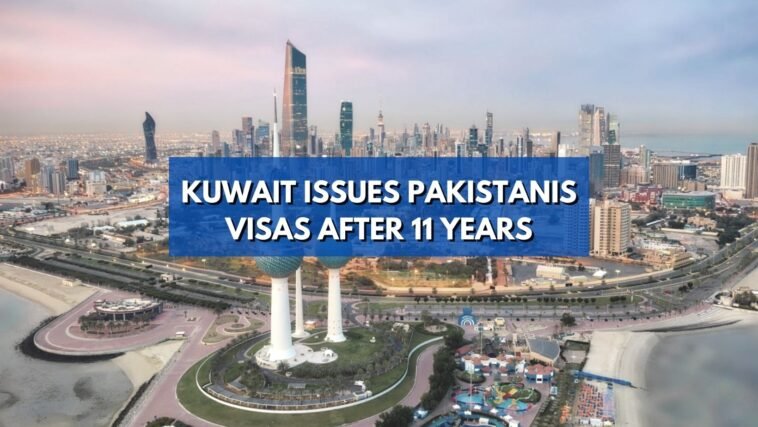After 11 years, Kuwait has decided to issue work and family visas for citizens of Pakistan. Sheikh Rasheed Ahmad Pakistani Interior Minister told reporters that, “I am pleased to announce that Kuwait is opening family and business visas for Pakistanis after 11 years. Kuwait has also allowed visas for oilfield workers, doctors, and teachers, as well as visas for those working in the construction, IT, and technology sectors.”
According to him, the visa ban on Pakistan was lifted after a meeting with Kuwait’s Prime Minister HH Sheikh Sabah Al-Khaled Al-Sabah. Further, he added that “In the first stage, we are going to start with family and business visas, while work visas will be issued in the second stage. Kuwait is very excited about construction and technical workers from our country. It took 11 years for this decision and we are very happy with this new development.”
Due to security and political concerns, Kuwait has for more than a decade banned citizens of Pakistan, Iran, Iraq, Syria, Afghanistan, and Yemen from entering the country. Blacklisted visas involve trade, tourist, and visit visas, as well as visas sponsored by spouses. About 94,000 Pakistanis live in Kuwait, a decline from 150,000 in 2009.
The citizens of Pakistan were shocked when they heard the ban came into effect. Many people face difficulties with this decision. However, in 2017, the Pakistani government also published the lifting of the ban by Kuwait during a visit by former PM Nawaz Sharif to Kuwait. However, it was never enforced.
Ahmad added, “I came under the direction of our Prime Minister Imran Khan, and in a kind gesture of goodwill, the Kuwaiti government allowed 72 prisoners to be transferred to Pakistan to serve their sentences there. Unfortunately, only six agreed to be shifted to Pakistan. We are arranging their flight back home soon.”
In response to a question about the impact of the US withdrawal from Afghanistan, Ahmad said, “peace in neighboring Afghanistan is peace for Pakistan too. The Taleban have been deep-rooted in our provinces too, but the good news is that around 87% of the Afghan border has been secured – for the first time in 70 years – to ensure peace and stability. The remaining border-fencing will be done in two months. We support the democratic process in Afghanistan, and are waiting to see the situation in the next few months or so.”



